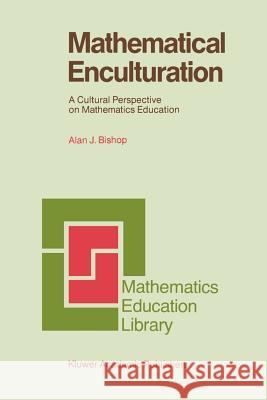Mathematical Enculturation: A Cultural Perspective on Mathematics Education » książka
Mathematical Enculturation: A Cultural Perspective on Mathematics Education
ISBN-13: 9780792312703 / Angielski / Miękka / 1991 / 196 str.
Mathematics is in the unenviable position of being simultaneously one of the most important school subjects for today's children to study and one of the least well understood. Its reputation is awe-inspiring. Everybody knows how important it is and everybody knows that they have to study it. But few people feel comfortable with it; so much so that it is socially quite acceptable in many countries to confess ignorance about it, to brag about one's incompe tence at doing it, and even to claim that one is mathophobic So are teachers around the world being apparently legal sadists by inflicting mental pain on their charges? Or is it that their pupils are all masochists, enjoying the thrill of self-inflicted mental torture? More seriously, do we really know what the reasons are for the mathematical activity which goes on in schools? Do we really have confidence in our criteria for judging what's important and what isn't? Do we really know what we should be doing? These basic questions become even more important when considered in the context of two growing problem areas. The first is a concern felt in many countries about the direction which mathematics education should take in the face of the increasing presence of computers and calculator-related technol ogy in society."











